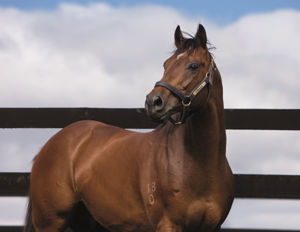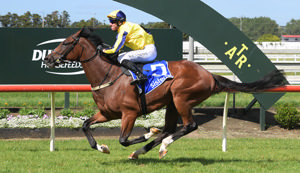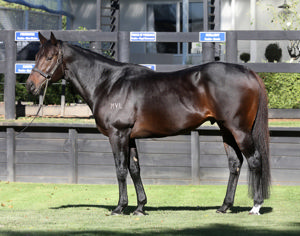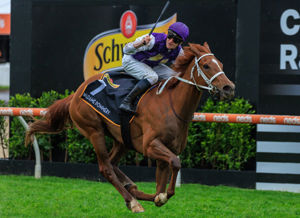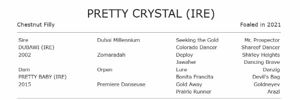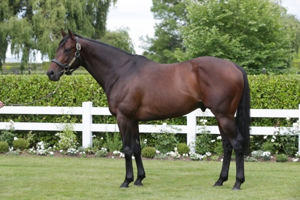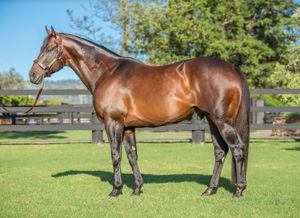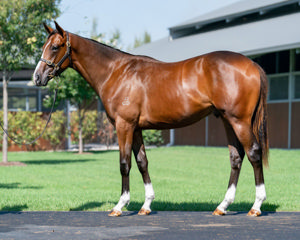Amongst the common business structures, there is little doubt that trusts cause the most confusion and angst to existing and new business clients.
Invariably I've found this to be the case in my dealings at my practice and this is also very much reflected when I run special talks on tax structuring for industry associations. Question time at these talks is dominated by questions relating to trusts! So, if you think "is it just me" when it comes to understanding trusts, think again.
This article will be about "demystifying" the trust structure and helping you to make a reasonably informed decision as to whether a trust is appropriate for your horse business, or any other business, you have in mind. In this regard, refer to my listing at the end of this article as to when a trust may be appropriate for horse activities.
As noted below, trusts are most commonly used for reasons of Asset Protection , i.e. if the trust has any legal exposure (say it must pay an amount of money to a customer due to negligence), generally that exposure only relates to the assets of the trust and not to the assets held by the beneficiaries of the trust. A recent court decision confirmed that trusts still provide as much asset protection as they ever have (refer below).
What is a trust?
A trust is a relationship where a person (the trustee) is under an obligation to hold property for the benefit of other persons (the beneficiaries).
Example
Ciaron is a dentist and has a risk of being sued for negligence. Ciaron is also a single parent and has two children, Anthony and Jacqui, aged 10 and 12. Ciaron wishes to provide for his children if anything ever happened to him.
Ciaron asks his brother Tim, to "hold" certain income producing assets on behalf of Anthony and Jacqui.
Ciaron instructs Tim in writing that he (Tim) will be the legal owner of the property, but any income flowing from the assets will only accrue to Anthony and Jacqui.
The above arrangement is a form of trust relationship as follows:
- Trustee – Tim;
- Beneficiaries – Anthony and Jacqui;
- Trust deed – Ciaron's instructions to Tim.
Trustees generally have unlimited powers in deciding in what to invest. The trustee's powers are set out in the trust deed , but the trustee has a responsibility to exercise skill and care in making their investment decisions.
A trust is not a separate legal entity, even though, for tax law purposes, a trust return is required to be lodged, supported by trust financial statements.
A trust cannot exist forever. The trust comes to an end on the "Vesting Day". In most States and territories, they must end within 80 years of the establishment date.
Discretionary trusts
Most trusts set-up to run family businesses are technically known as "discretionary" trusts. A discretionary trust is often called a "family trust".
A discretionary trust is generally a trust under which the distribution of income or capital to beneficiaries is made at the discretion of the trustee.
The features and parties of a trust noted within the trust deed and discussed below are:
· Settlor;
· Settled Sum;
· Beneficiaries;
· Trustee; and
· Appointor.
When does a discretionary trust start?
A discretionary trust is created when a person known as the "settlor" gives the trustee money or property for the benefit of the beneficiaries. This "settled sum" is the original trust fund and is generally a nominal amount, say $20. The settlor is normally a family friend and should not be a beneficiary of the trust, nor ideally, should they be the client's advisor or anyone similar if they could be seen to benefit or receive money from the trust (e.g., if it could be argued the settled sum has been refunded to the settlor). No other legal obligations arise for the settlor, who is not responsible in any way for the trustee's actions.
Beneficiaries
There are different types of beneficiaries, including:
· Primary beneficiaries , who will usually be entitled to undistributed capital and income on winding up of the trust and, in most discretionary trusts, will include the immediate family of those for whom the trust is being set up; and
· General beneficiaries , usually determined by their relationship to the primary beneficiaries (e.g., the spouses, children, parents, etc) as well as other people set out in the trust deed (including related companies and trusts).
The client chooses who the primary beneficiaries are, but in a family situation these are generally the "Mum & Dad" and their children. Legal partners are also often primary beneficiaries.
No beneficiary has any claim to any assets of the trust unless and until the trustee makes a distribution of income (or a trust asset) in their favour.
Trustee
The trustee is the 'legal owner' of the trust property, and, is responsible for managing the trust fund on behalf of the beneficiaries (who are the beneficial owners of the trust fund). Being the legal owner , all the transactions of the trust are carried out in the name of the trustee . The trustee signs all documents for and on behalf of the trust, i.e., in its capacity as trustee of the trust.
As a trust is not a separate legal entity, the trustee bears the duties and responsibilities in relation to the trust. As such, the trustee is personally liable to creditors and accountable to beneficiaries.
A company trustee generally offers greater protection than an individual(s) being the trustee, so, where possible, a company should be the trustee, especially where a higher risk business is being conducted.
Appointor
The appointors (or appointor) of a trust have the real power and control of the assets of a trust, since the appointors have the power to appoint and remove trustees. In many cases, the original appointors include the one or more of the parties for whose benefit the trust is established.
Who should be the appointor?
As the real control of a trust lies with the appointor, extreme care should be taken in choosing the appointor. Generally, having several joint appointors, possibly including an independent appointor, provides greater asset protection and succession planning benefits, so it is preferable to avoid having a sole appointor.
Advantages of discretionary trusts
These include but are not limited to:
•Greatest flexibility to distribute income and capital;
•Good level of asset protection under trust law (especially if a corporate trustee);
•'Non-Commercial Loss' rules for high-income earners do not apply to trusts,
•General 50% CGT Discount still applies to beneficiaries;
•Not overseen by ASIC;
•Easier to wind-up than a company; and
•The trust deed can be tailored to meet the needs of principles & beneficiaries.
Disadvantages of discretionary trusts
These include but are not limited to:
•Complex loss rules and flow through of franking credits re shares can be 'lost';
•Can be costly to establish, in Victoria & NSW stamp duty is payable (currently approximately $200 and $500 respectively);
•Trust minutes and documentation required;
•Tax losses in the trust are 'quarantined' and can only be used by the trust and cannot flow to beneficiaries to reduce their tax liabilities;
•Individual trustees can be personally liable for debts of the trust; and
•Not suitable for 'arm's length' business partners.
This latter point is especially significant as beneficiaries in a discretionary trust do not have a "share" in the trust structure unlike, say, shareholders do via their shares in a company. For unrelated parties going into a business together, a Unit Trust is generally the trust option that suits them best.
Asset protection of trusts stronger than ever
Trusts have traditionally been very popular for asset protection, but the 'Richstar' 2006 case put this in doubt.
However, in a 2016 QLD Supreme Court case ('Fordyce v Ryan') it was again confirmed property of a trust beneficiary (say the family home) was not available in a bankruptcy of that beneficiary, so trusts are even safer for asset protection than once thought!
Examples of trusts being used in a horse business
These include, but are not limited to:
· Running a racing and/or breeding business where "protecting" these valuable assets is crucial (e.g. stallion interests, high-quality mares and racehorses);
· Owning a horse property, especially where there is another related horse business involved (e.g. training, agistment or breeding business). Note – proper tax structuring should be very mindful of keeping the business property/plant and the actual business in separate entities; and
· Running a higher risk agistment/pre-training business.
Note – using a trust to run a business where the provision of "personal services" are involved, say a consultancy, can be problematic unless certain rules are met.
If you wish me to expand or clarify on any of the above matters raised above, please do not hesitate to contact me.
PAUL CARRAZZO CPA
CARRAZZO CONSULTING CPAs
801 Glenferrie Road, Hawthorn, VIC, 3122
TEL: (03) 9982 1000
FAX: (03) 9329 8355
MOB: 0417 549 347
E-mail: paul.carrazzo@carrazzo.com.au
Web Site: www.carrazzo.com.au

